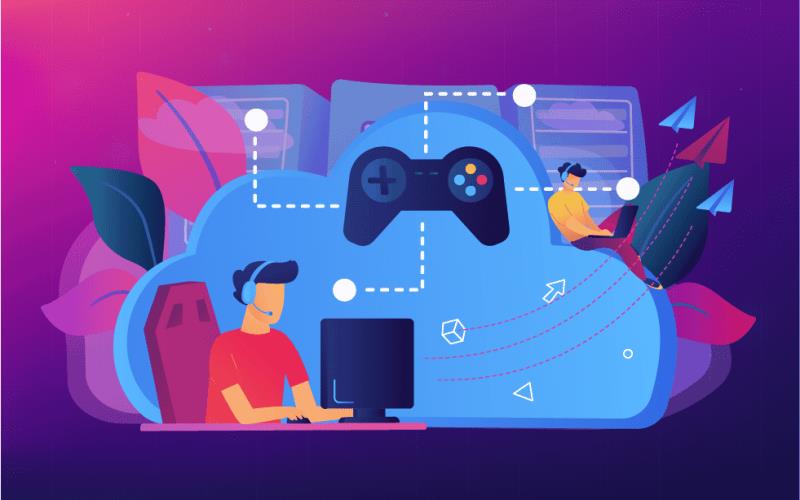In the digital age, online gaming บาคาร่าเว็บตรง777 has evolved from a niche hobby to a global phenomenon, captivating millions of players across the globe. Beyond its entertainment value, online gaming exerts a profound influence on real-world economies, shaping industries, driving innovation, and generating substantial economic activity. This article explores the multifaceted ways in which online gaming impacts real-world economies, from its contributions to job creation and market expansion to its role in technological advancement and cultural exchange
The Global Gaming Economy
The global gaming industry has experienced exponential growth in recent years, fueled by advancements in technology, widespread internet access, and shifting consumer preferences. According to market research firm Newzoo, the global games market is projected to surpass $200 billion in revenue by 2023, with online gaming representing a significant portion of this total. From mobile เว็บบาคาร่า games and console titles to PC gaming and esports, the breadth and diversity of the gaming ecosystem continue to expand, driving economic activity across multiple sectors.
Job Creation and Employment Opportunities
One of the most tangible impacts of online gaming on real-world economies is its contribution to job creation and employment opportunities. The burgeoning gaming industry supports a vast ecosystem of developers, designers, programmers, marketers, and content creators, among other roles. From indie studios to multinational corporations, gaming companies employ a diverse workforce บาคาร่า168, driving innovation, creativity, and economic growth.
Moreover, the rise of esports has created a demand for a range of professional roles, including players, coaches, analysts, event organizers, and broadcasters. Esports events attract millions of viewers worldwide, generating revenue through sponsorships, advertising, ticket sales, and media rights. As the esports industry continues to mature, it offers lucrative career paths for talented individuals passionate about gaming and competitive sports.
Market Expansion and Technological Innovation
Online gaming serves as a catalyst for market expansion and technological innovation, driving demand for hardware, software, and infrastructure. The popularity of online multiplayer games has spurred investments in high-speed internet connectivity, cloud computing, and server infrastructure to support seamless gaming experiences. Moreover, the proliferation of gaming platforms, from consoles and PCs to mobile devices and streaming services, has diversified revenue streams and expanded the reach of gaming content to new audiences.
Furthermore, online gaming fuels technological innovation in areas such as virtual reality (VR), augmented reality (AR), artificial intelligence (AI), and blockchain technology. Developers leverage these emerging technologies to create immersive gaming experiences, enhance player engagement, and introduce new gameplay mechanics. As a result, innovations pioneered in the gaming industry often find applications in other sectors, driving cross-industry collaboration and technological advancement.
Digital Goods and Microtransactions
The monetization model of online gaming has undergone a paradigm shift with the rise of digital goods and microtransactions. In addition to traditional sales of game copies or subscriptions, many online games offer in-game purchases of virtual items, skins, cosmetics, and loot boxes. These microtransactions generate significant revenue for game developers and publishers, contributing to the overall profitability of the gaming industry.
Moreover, the secondary market for digital goods has emerged as a lucrative ecosystem, where players buy, sell, and trade virtual items for real-world currency. Platforms like Steam, Epic Games Store, and third-party marketplaces facilitate transactions, creating opportunities for entrepreneurs and traders to profit from the virtual economy. While controversies surrounding loot boxes and gambling mechanics persist, digital goods have become an integral part of the online gaming experience, driving economic activity and player engagement.
Cultural Exchange and Tourism
Online gaming serves as a catalyst for cultural exchange and tourism, fostering connections between players from diverse backgrounds and regions. Massively multiplayer online games (MMOs) and virtual worlds provide platforms for social interaction, collaboration, and community building, transcending geographical boundaries and cultural differences. Players form friendships, join guilds, and participate in virtual events, creating shared experiences that bridge cultural divides.
Moreover, the popularity of esports tournaments and gaming conventions has transformed cities into hubs for gaming enthusiasts and industry professionals. Events like the Electronic Entertainment Expo (E3), Gamescom, and the International Dota 2 Championships attract millions of attendees annually, generating revenue for local economies through tourism, hospitality, and ancillary services. As gaming culture continues to permeate mainstream consciousness, cities around the world vie to host major gaming events, recognizing their economic impact and cultural significance.
Conclusion
Online gaming exerts a far-reaching influence on real-world economies, driving economic activity, fostering innovation, and shaping cultural exchange. From job creation and market expansion to technological innovation and cultural tourism, the impact of online gaming extends beyond virtual realms to permeate every facet of contemporary society. As the gaming industry continues to evolve and diversify, its contributions to global economies will only grow, reaffirming its status as a transformative force in the digital age. By recognizing and harnessing the economic potential of online gaming, policymakers, businesses, and communities can leverage its power to fuel prosperity, creativity, and connectivity on a global scale.

